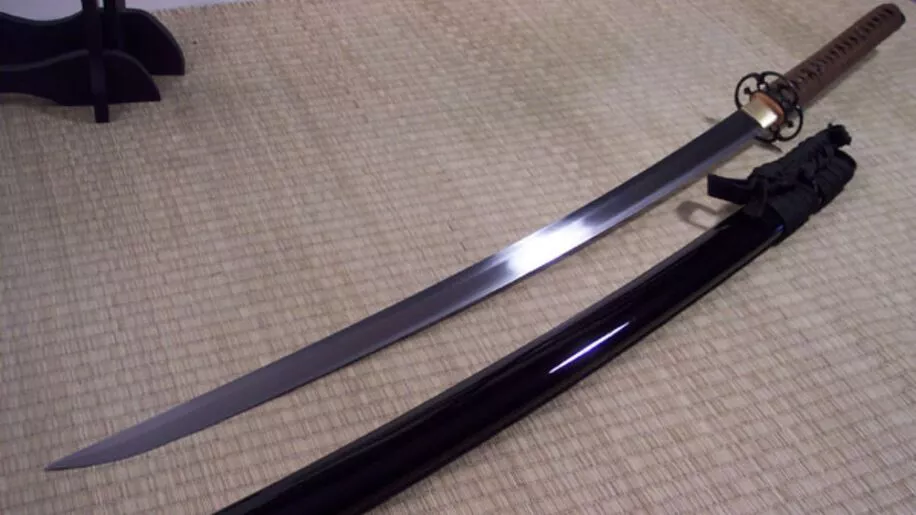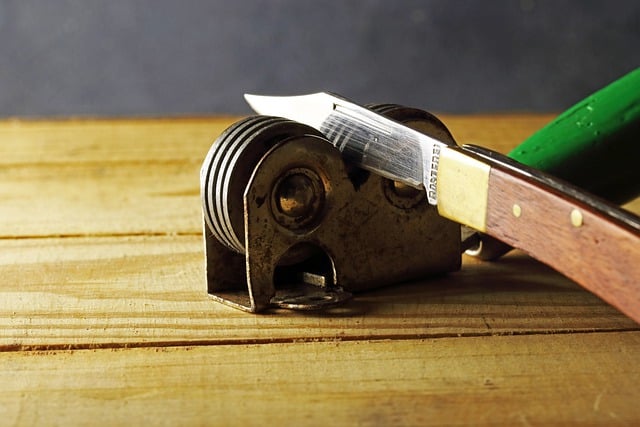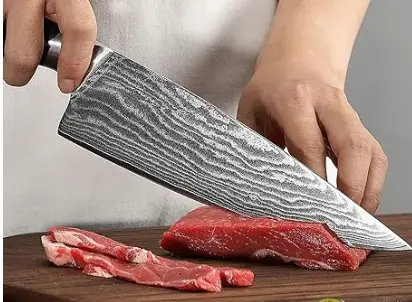What is 9260 spring steel?
9260 spring steel is used in making swords and katanas due to its excellent toughness and ability to withstand high lateral bends. This property makes it unique but it also presents challenging aspects of heat treating, thus very few manufacturers make swords and katanas from this steel.
9260 steel is suitable for manufacturing tools and blades to be used in applications that demand maximum resilience and strength. It is used to manufacture springs, aircraft parts, swords, knives, lawnmower blades, and machine tools.
What does 9260 mean?
Because of its chemical composition, 9260 stands out as a very flexible steel. The silicon allows the steel to twist and bend up to 90 degrees and get back to its original shape without breaking.
The steel is highly resistant to heat treatment; therefore, it preserves its properties even in extreme heat conditions. This is unlike carbon steel, whose performance is determined by the heat used in the manufacturing process.
9260 Spring Steel Composition
- Carbon C 0.64%: Increases edge retention, hardness, and tensile strength. It also improves steel resistance to wear, abrasion, and corrosion.
- Manganese Mn 0.90%: improves the strength and hardness of steel. When the steel is heat-treated, hardenability is improved with increased manganese.
- Silicon Si 2.20%: Increases strength, toughness, and heat resistance.
- Phosphorous P 0.02%: Considered an impurity but may Increase the strength and improves the machinability of steel
- Sulfur S 0.02%: Improves machinability but is regarded as an impurity in high quantities.
Properties of 9260 steel
9260 Spring Steel Hardness
9260 steel has a hardness of 61 HRC as per the Rockwell hardness scale. Because of this high hardness, 9260 cannot be forged by hand. It must be exposed to very high temperatures to process the material. The good news is that it is resistant to heat, and therefore, there is no worry that it will lose carbon which will affect its performance.
9260 Spring Steel Edge retention
The edge retention of steel is determined by its hardness and the amount of carbides formed in its alloy composition. 9260 steel edge retention is not the best out there due to its low carbide content but it’s good enough for swords.
9260 Spring Steel Toughness
The toughness of steel is defined as the ability of steel to take on force and impact, and 9260 steel is excellent in that sector. Being silicon steel, it is very flexible, and therefore, it can withstand high impact or force without breaking. The strength of 9260 is essential for the sword as it can flex highly and return to its original shape.
9260 Spring Steel Wear resistance
9260 steel is a very durable steel thanks to its high hardness. The steel can last for a long time, even with frequent demanding applications. 9260 steel swords are strong enough to withstand the frequent sharpening with minimal material removal due to their excellent wear resistance.
9260 Spring Steel Corrosion resistance
9260 steel is resistant to corrosion, and that is why it is perfect for the manufacture of springs and swords. The corrosion resistance reduces the need for constant care and maintenance and means more durability for the blades, springs, and other tools because they are not deteriorating from corrosion.
Ease of sharpening 9260 Spring Steel
Considering its hardness, 9260 steel is difficult steel to sharpen. It can be sharpened by a seasoned user or a swordsmith using the right sharpening tools and technique. Since 9260 retains a sharp edge for a long time, you might never find the need to sharpen it for the period you will have it. Consult with the store you purchased for professional sharpening if this time ever comes.
9260 spring steel vs other steels
9260 steel vs 1095 steel
The main difference between 9260 spring steel and 1095 steel is that 9260 spring steel is silicon steel, while 1095 steel is high carbon steel. 9260 sword steel is a hard steel with increased toughness and flexibility due to the added silicon over 1095 steel.
1095 steel on the other hand trades edge retention for toughness. It is not tough steel but it is extremely hard and offers better edge retention on swords over 9260 spring steel. When properly hardened and tempered it is less fragile may withstand tougher applications
9260 spring steel vs T10 steel
The main difference between 9260 spring steel and T10 steel is that 9260 spring steel is high silicon steel with a hardness of up to 61HRC, while T10 steel is a tool steel with a hardness of up to 67 HRC. 9260 spring steel swords offer better toughness and flexibility over T10 steel swords, T10 steel swords on the other hand offer better edge retention.
The tungsten available in T10 steel improves T10 steel sword better wear resistance and abrasion properties over 9260 sword steel. Both 9260 sword steel and T10 steel will perform optimally when subjected to better heat treatment, they both require expertise during the heat treatment stage for a great sword.
9260 spring steel vs 5160
Both 9260 and 5160 are spring steels; but 9260 spring steel is a high silicon manganese spring steel, while 5160 is a high carbon and chromium spring steel. The main difference between 9260 steel and 5160 steel is the silicon elements in 9260 steel which makes it highly flexible.
Both 9260 steel and 5160 steel offer excellent toughness. Their toughness is among the best in the sword steels. Both steels need careful heat treatment to achieve optimal sword steel properties. However, 5160 steel swords and katanas are cheaper than 9260 swords and katanas as most sword makers and knife makers have mastered the heat treatment of 5160 steel.
9260 spring steel vs 1060 steel
The main difference between 9260 spring steel and 1060 steel is that 9260 spring steel contains silicon in its alloy composition. The added silicon makes 9260 sword steel extremely flexible and tough, thus 9260 sword steel is better than 1060 sword steel in toughness and flexibility.
9260 steel will also offer slightly better edge retention than 1060 steel due to its increased hardness, however, this property is likely to be unnoticeable in real-life applications. Both sword steels are not corrosion resistant and extra care is needed to keep them rust-free.
Is 9260 steel good for swords?
9260 spring steel is not the best out there in sword steel but consider it better than 1060 steel due to the added silicon. 9260 sword steel was popularized by Cheness Cutlery and used in a few other katanas.
Due to its extremely hard forging techniques, it is not widely available in most sword brands and katanas.9260 spring steel swords are highly-priced and very scarce in supply. Find genuine 9260 swords from the Cheness Swords store.
Is 9260 spring steel good for a katana?
It is highly durable and exhibits excellent wear resistance even with frequent use. 9260 steel is however not stainless steel and will require care and attention to keep the katanas from rusting.



